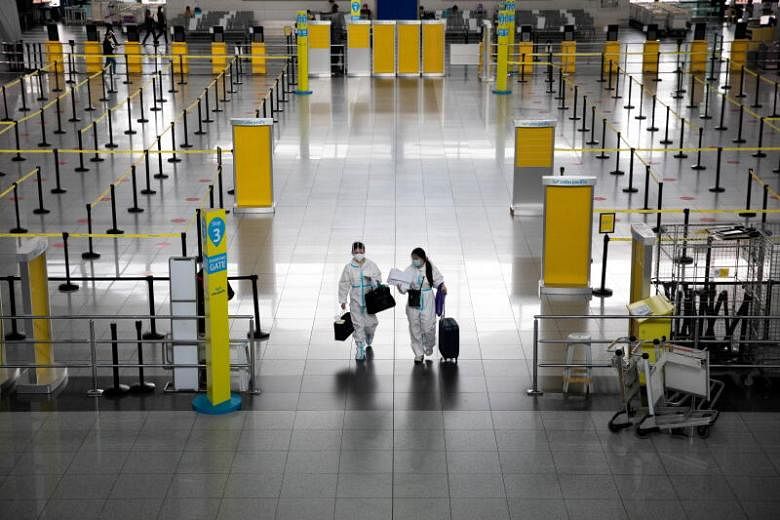MANILA - The Philippines has further tightened travel restrictions as it tries to head off the spread of new variants of the coronavirus.
Starting Feb 1, all inbound travellers, regardless of where they come from, will have to go into quarantine in government-approved facilities for at least five days.
Tests will no longer be carried out at the airport but on the fifth day of quarantine. Only those who test negative will be allowed to go home and continue with their quarantine for nine more days.
Those who test positive will remain quarantined in a government-approved facility, and their blood samples will be taken for genome sequencing to determine which variants they were infected with.
All inbound travellers up to now have been tested for Covid-19 infections at the airport and instructed to wait for their results at a government-accredited facility or hotel. They usually get their results in 24 hours, and are then sent home, if they test negative.
The Philippines has already closed its borders to all travellers from over 30 countries and territories where new, more contagious variants of the Covid-19 virus have been detected, including Singapore. The ban remains in force until Jan 31.
Only Filipinos and expats with spouses, children and parents here, as well as diplomats, from these countries and territories are allowed into the country. But they are subject to extra restrictions.
They are tested for Covid-19 at the airport, sent to a quarantine facility where they await the results. Even if they test negative, they have to stay quarantined for a second test to be taken on the fifth day of their quarantine. They can go home only if they still test negative after the second test.
The Philippines is tightening border controls after health officials confirmed a local transmission of the more contagious coronavirus variant first detected in Britain in September.
The British variant - officially known as VUI-202012/01, or lineage B117 - is believed to be 70 per cent more transmissible than previously circulating variants.
A tentative finding by researchers in London suggests that it may be deadlier than the original, although the studies remain very preliminary and are based on a small number of fatalities in hard-hit hospitals.
The Philippines has found at least 17 cases of the British variant.
Health officials are particularly concerned over a cluster of 12 infections in Bontoc town, in Mountain Province, over 400km north of the capital Manila.
These cases were linked to a Filipino who arrived in Bontoc from London on Dec 14. He tested negative for Covid-19 when he landed in Manila but displayed symptoms of Covid-19 two weeks later.
He has since been linked to 46 infections, including the 12 people who had the British variant.
But health officials remain puzzled by the fact that he does not have this same variant, suggesting that the 12 people may have been infected by someone else.
Philippine health experts have warned that the new variant could raise the country's total caseload by 15 times.
If allowed to spread, the number of cases could jump from just 20,000 to over 300,000 a month, they said.












